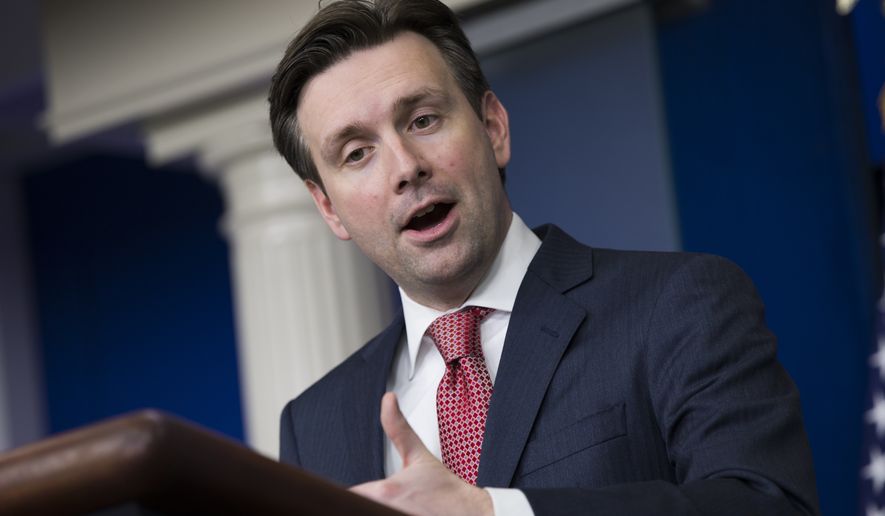The White House on Wednesday said its coalition fighting the Islamic State is strong even after the United Arab Emirates pulled out of air attacks against the terrorist group that burned alive a captive Jordanian air force pilot.
The UAE, one of five Arab nations in the U.S.-led military coalition, stopped flying bombing missions in December after Islamic State militants in Syria captured the downed Jordanian pilot, Obama administration officials acknowledged Wednesday. But a White House spokesman said the Emiratis’ withdrawal from air attacks doesn’t mean the coalition “has waned in any way.”
“The air campaign that’s being waged over the skies of Syria remains incredibly — and, in some cases, even devastatingly — effective,” said White House press secretary Josh Earnest.
But in the wake of Jordanian King Abdullah II telling Congress that he needs more weapons to fight the Islamic State, also known as ISIS or ISIL, Senate Armed Services Committee Chairman John McCain said the coalition isn’t making progress toward President Obama’s goal to “degrade and ultimately destroy” the terrorist group.
“Overall, there’s still no strategy from this administration as to how to combat ISIS,” said Mr. McCain, Arizona Republican. “Have no doubt, ISIS is winning. We’re neither degrading nor destroying ISIS. We have no strategy for doing so.”
Mr. Obama has been under increasing pressure for the coalition to show results from its five-month air campaign against the Islamic State in Iraq and Syria. In addition to the group’s territorial gains, the militants have carried out a horrific media campaign by releasing a series of videos showing executions of hostages, including beheadings and the immolation this week of Jordanian Lt. Muath al-Kaseasbeh in a cage.
Jordan, which is part of the U.S.-led alliance, had promised an “earth-shaking response” to the killing of its pilot, who was captured after his F-16 crashed.
Government spokesman Mohammad al-Momani said on Wednesday: “We are talking about a collaborative effort between coalition members to intensify efforts to stop extremism and terrorism to undermine, degrade and eventually finish Daesh.” “Daesh” is used as a derogatory Arabic term for the Islamic State.
White House aides didn’t rule out increased military aid to Jordan.
“A lot of this requires important coordination, not just in terms of the work that we have to do with the Congress, but also in terms of the work that we’ll do with the Jordanians to ensure that we are providing the actual assistance that they are requesting and that they need,” Mr. Earnest said.
Administration officials said, to date, the coalition has carried out more than 1,000 airstrikes over Syria against the Islamic State, targeting fighters, vehicles, tanks and about 260 oil and gas facilities.
“The pace of operations in Syria has not slowed,” Mr. Earnest said.
As the president confronted fallout from the latest execution by the Islamic State, he also held a meeting at the White House with Muslim leaders from around the U.S. Although the president has been emphasizing that Islamist terrorists should not be associated with the religion, aides characterized Mr. Obama’s agenda for the meeting as a much broader discussion.
Mr. Earnest said the meeting was to touch on “middle-class economics” and Obamacare, with the president “encouraging them to get the word out in their communities about the opportunity that exists for people who previously couldn’t afford health insurance.”
• Dave Boyer can be reached at dboyer@washingtontimes.com.




Please read our comment policy before commenting.